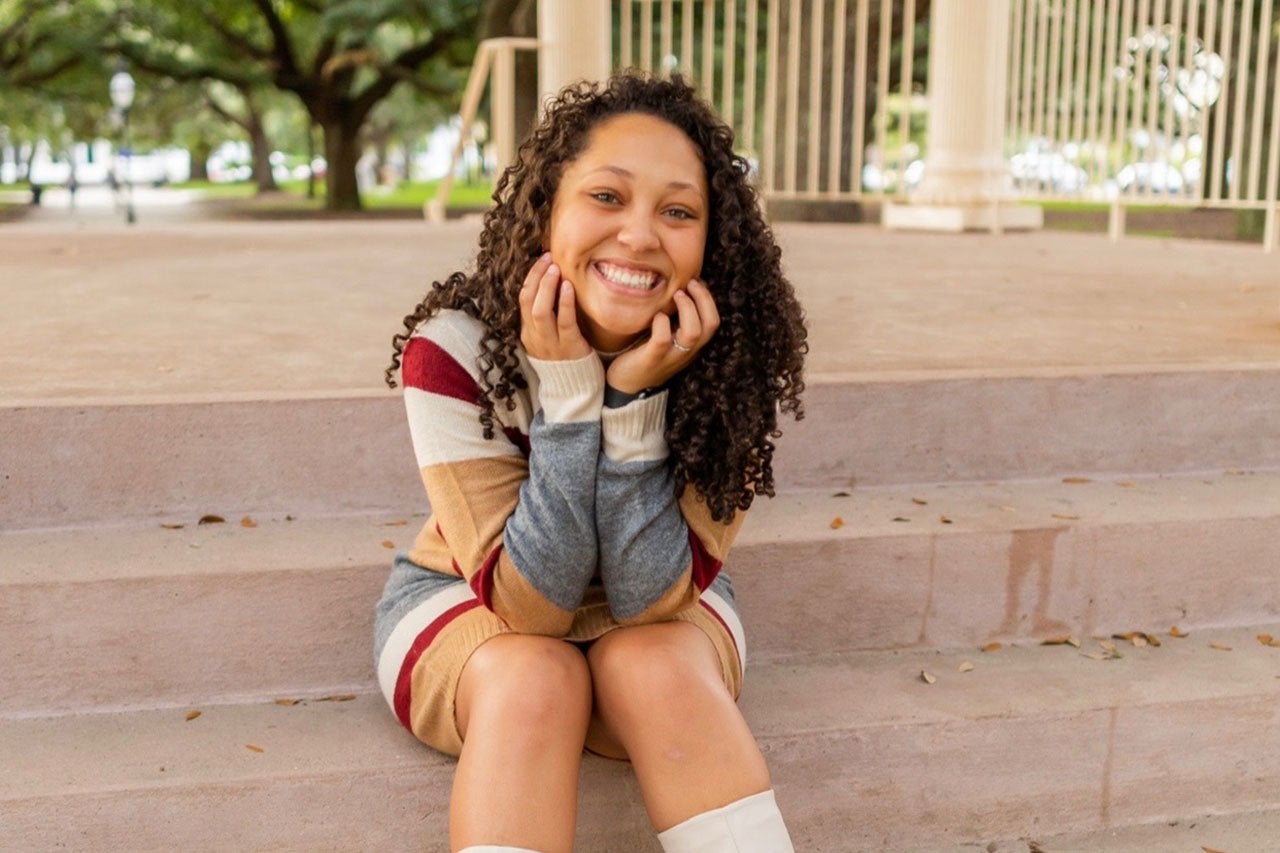The College of Charleston’s 1967 Legacy Program, which supports the academic and professional success of Black students, has awarded the first Septima Clark and Esau and Janie B. Jenkins Local Legends Endowed Scholarship (Clark-Jenkins Scholarship) to freshman Alyssa Craft. The scholarship, endowed by South Carolina activist Linda Ketner, honors three local Charleston heroes of the civil rights movement.
“Esau and Janie Jenkins and Septima Clark are my all-time heroes. Period,” says Ketner. “In the 1960s, I had heard Martin Luther King Jr. name Septima as the ‘Mother of the Civil Rights Movement.’ I learned of the Jenkins family in the 1990s when I bought a house on John’s Island, South Carolina, that had me cross the Esau Jenkins bridge. I did research on both and found wonderful things.”
Septima Poinsette Clark, who was born in Charleston, was a teacher and civil rights activist. She was passionate about equipping other African Americans with the tools to be able to exercise their right to vote.
Clark helped establish nearly 900 citizenship schools around the country so African Americans could receive education in practical, economic and political literacy. In her fight for equality, she was fired from the Charleston County school system for being a member of the National Association for the Advancement of Colored People (NAACP). Being fired only strengthened Clark’s resolve: she delved deeper into her fight for equality and worked alongside Martin Luther King Jr., Dorothy Cotton and many other civil rights heroes.
The Jenkins were dedicated African American civil and human rights leaders from Johns Island. They fought to correct the educational injustices against African American children in their community where children attended sub-standard elementary schools and didn’t have access to a high school. Through the Jenkins’ persistence, elementary educational resources were improved and Haut Gap High School was established on Johns Island in the 1950s. In the interim, they purchased buses to transport students to a public high school in Charleston and workers commuting to the city. During the commute the Jenkins taught adult passengers how to read the section of the United States Constitution required to become registered voters.
Their many other achievements include helping organize one of the first citizenship schools in the South, creating a credit union to make low-interest loans accessible to African Americans, forming a service for migrant and seasonal farm workers and setting up a program offering low-income housing, a nursing home and a community health center for Sea Island residents.
“The purpose of establishing the scholarship is to get out the word of what these three accomplished,” shares Ketner. “Clark spent her life in education, Esau did it all with a fourth grade education. I want students to learn you don’t have to have much of anything to make a difference.”
“We have a First Year Experience class where we share history with a focus on community engagement,” says Valerie Frazier ‘91, associate professor of English and director of the 1967 Legacy Program. “Students meet and connect with many of these trailblazers, who share their life stories.”
Craft, the first-ever recipient of the Clark-Jenkins Scholarship, says the work of Clark and the Jenkins’ has undoubtedly impacted her life and learning more about civil rights trailblazers is something that’s really important to her.
“I am half-Black, half-white; I’ve primarily been raised with a white education,” says the Honors College student and biochemistry major who is on the pre-med track. “The 1967 Legacy Program allows me to immerse myself in my African American culture.
“Despite being a child of a former slave, Clark still achieved an education,” adds Craft. “She instilled the belief that African Americans are more than the color of their skin. The Jenkins shared their passion in teaching others to read the Constitution so they could fight for their voting rights.”
“We are at a different place in history,” says Ketner. “It’s different, but equally important to make things better. I hope people will learn and follow their footsteps to make a more equitable and better South Carolina.”




